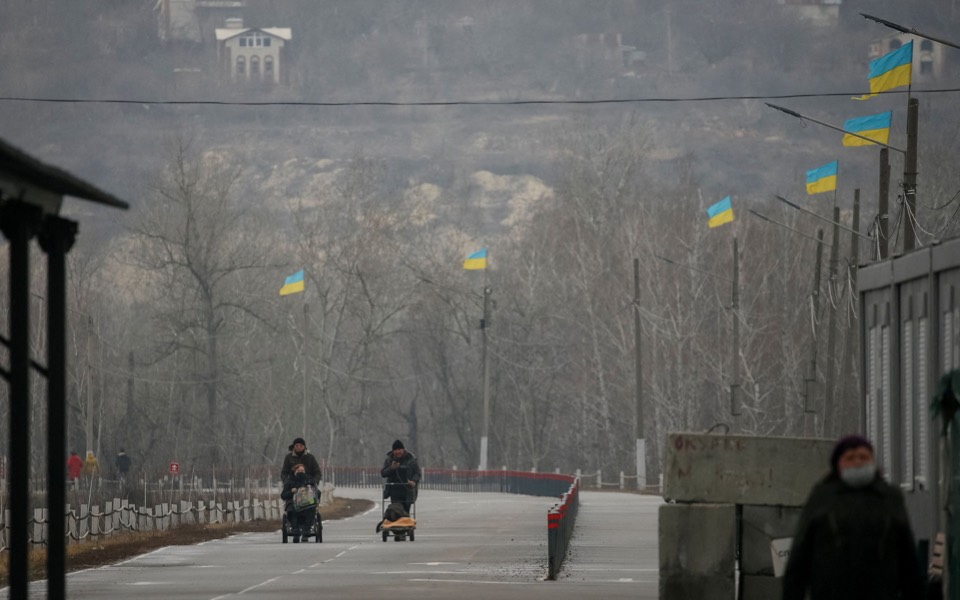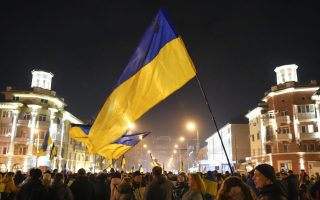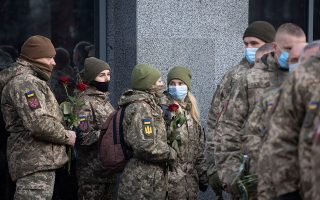Greece’s stance on Ukraine crisis should go without saying

The two biggest obstacles the rebelling Greeks of 1821 had to face were the massive gulf in clout separating them from the Ottomans and the negative stance of the great powers, which were eager to avoid any trouble and uprisings.
The Ukrainians are in a similar position today, demanding respect for their independence and their right to make their own choices. Like the Greeks in 1821, the Ukrainians today are seeking progress and they understand, quite rightly, that the only way to accomplish this is the same way we did: by forming closer ties with the West – politically, socially and economically. This desire, however, is at odds with Russia’s aims, just as ours were back then against the interests of the Ottomans.
Now, like then, this is taking place in an environment defined by a massive gulf in power with Russia and an indifferent – if not hostile – international community, in part because of Europe’s dependence on Russian energy.
These similarities should have made us automatically side with the Ukrainians. Instead, a sense of indifference seems to be the case, behind which there lie ersatz claims of neutrality (with talk of the “specter of war,” which suggests that everyone is at fault) or a traditional affinity for Russia.
Even analyses in favor of Ukraine tend to look at the issue from a very narrow and self-serving point perspective, with Russian aggression compared to Turkish aggression against Greece. Such a stance is unfair and wrong. What is happening in Ukraine has a much more direct and profound bearing on Greece. Russian aggression is justified with geopolitical excuses: It feels surrounded after losing a large geographical zone over which it once held complete sway. Such analyses usually also contain some reference to the catastrophe that befell Russia with the collapse of communism and the trauma that caused.
But a closer look at the situation in Russia reveals that it is less at risk from being surrounded than it is from other factors: Its economy is overly reliant on energy (with the production of oil and natural gas accounting for some 40% of its economy), its demographics are nosediving (its population shrank by a million between 2020 and 2021 alone), and its young and educated people are migrating in droves. Politically, it is a combination of an old-school autocratic regime that openly stomps on individual freedoms and an oligarchic economic structure with all the traits of a mafia.
The real threat, therefore, lies within its own borders. Regardless of the mistakes made by the United States from 1990 onward, Russia could have chosen to take a different path, similar to that of the European countries that were once part of the Soviet bloc, just as Ukraine is trying to do.
So, the real issue is about politics and principles. On the one hand, we have an autocratic power that is employing methods harking back to Austria or Czechoslovakia in 1938 and behaving toward its neighbors like a colonialist. Vladimir Putin himself even wrote that the Russians and Ukrainians are one people, a position rejected by the vast majority of Ukrainians. On the other hand, we have a nation that is trying to get ahead and threatening nobody in the process, by adopting modern political and economic practices. The situation is crystal-clear and there should be no hesitation whatsoever about what stance Greeks must take.
Stathis N. Kalyvas is the Gladstone Professor of Government at the Department of Politics and International Relations at the University of Oxford.





